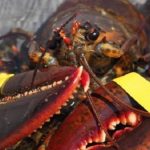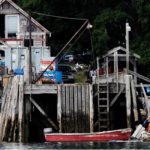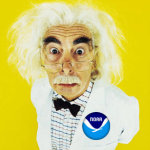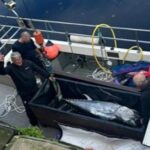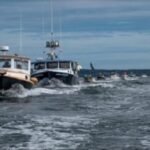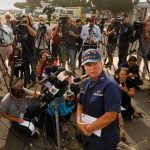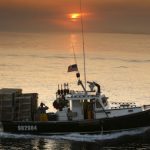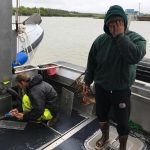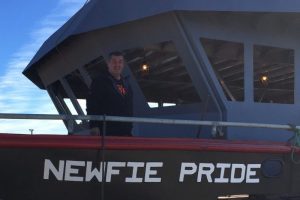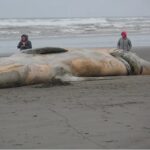Tag Archives: Mike Dunleavy
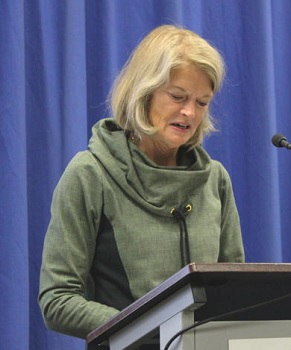
Bycatch stirs debate at fisheries roundtable
Hosted at Kenai Peninsula College by the Kenai River Sportfishing Association, the three-hour event brought together a who’s-who lineup of fisheries and policy experts from Alaska. That lineup included Alaska Department of Fish and Game Commissioner Doug Vincent-Lang, who said Bering Sea trawling is not responsible for Alaska’s declining chinook salmon runs. The Magnuson-Stevens Fishery Conservation and Management Act defines bycatch as fish harvested in a fishery that are not sold or kept for personal use. The phrase is sometimes used generally to refer to the capture of fish that are not being targeted by a specific fishery that are discarded. >click to read< 09:59
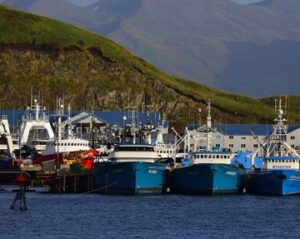
Regardless of party or office, Alaska candidates are targeting trawling
Republicans, Democrats and independents seeking a variety of elected offices across Alaska appear united by a desire to restrict deep-sea trawling. In candidate questionnaires submitted to the Alaska Beacon, candidates for statewide and legislative races, regardless of party, say the restrictions are the best way to improve salmon returns on the Yukon and Kuskokwim rivers. “I support efforts to reduce the wasteful bycatch of Alaska’s seafood by Seattle-based high seas fishing corporations,” said Mary Peltola, the Democratic candidate for Alaska’s U.S. House seat. “Science provides the best guide. However, I think most Alaskans agree it is past time to get high seas trawler bycatch under control,” said Tuckerman Babcock, a Republican candidate for an Alaska Senate district on the Kenai Peninsula. >click to read< 19:46
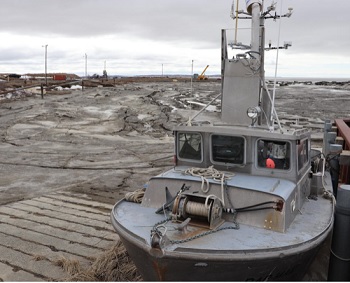
Dunleavy mandates strict guidelines for Bristol Bay commercial fishermen
The mandate targets independent fishing boats, many of which are operated by captains and crew who travel to Bristol Bay from outside Alaska. Specifically, it applies to those that have not “agreed to operate under a fleet-wide plan submitted by a company, association or entity” representing them. The new mandate also requires crewmembers to undergo verbal and physical screenings upon arrival — and they can’t have respiratory problems or fever. Crew members are allowed to quarantine onboard, though they’re still allowed to fish as long as they restrict contact with other boats and people on shore as much as possible. To protect communities, the mandate stipulates that crew can only leave the vessel for essential purposes. >click to read< 08:45
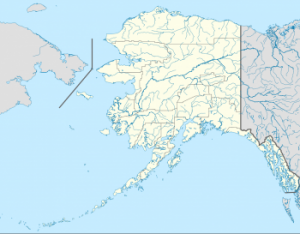
Fishing industry grapples with fallout from coronavirus response
Like almost all industries and institutions across Alaska, the novel coronavirus pandemic is shaking up the fishing industry. With restrictions changing almost daily and cases spreading across the United States, fishermen are still fishing, but the normal seasonal progression of the industry is likely to hit some rough waters. Travel in and out of Alaska has dropped after federal and state advisories against it, and questions are hovering about how seafood processors and fishing vessels will find the employees they need for upcoming seasons.,, Adding to that, the workers in the seafood industry are often seasonal and come from outside the communities where they work, from elsewhere in Alaska, the Lower 48 or international. That’s something the processing industry is working hard to figure out. >click to read< 17:23

































